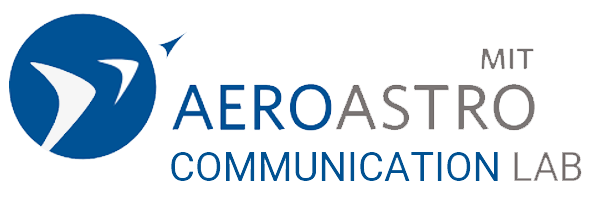

First Ph.D. Committee Meeting
1. introduction.
The purpose of this CommKit is to demystify the contents and expected deliverables for your first PhD Committee Meeting. After reading this document, you will know what your committee members are expecting from you when they show up to this first meeting.
2. Criteria for Success
Preparing for the committee meeting, you have already done the following.
- Formed your committee, composed of at least three committee members: your thesis advisor, your thesis committee chair, and another thesis committee member. For AeroAstro, two of these members must be MIT faculty.
- Created a presentation for the committee meeting, comprising slides explaining your assessment of what gaps exist in your expected PhD research area, a summary of your work in this area so far, and your coursework thus far in graduate school.
- Reviewed the presentation with your advisor to ensure the content is in line with their expectations for the first committee meeting. If possible, you can ask your advisor for their slide expectations before you start creating your presentation.
During the committee meeting itself, you will:
- Introduce your committee members to your proposed PhD topic. You will also introduce your committee members to one another.
- Establish your expectations for your committee members on the sort of help, feedback, and meeting frequency you would like to have for the rest of your PhD.
Your first committee meeting is the first time that your committee members are formally introduced to your PhD topic and your understanding of the area. Of lesser importance but still good to keep in mind, is that this meeting also be the first time your committee members meet one another. For many students, the first committee meeting serves as a dress rehearsal for the PhD proposal. Therefore, the first committee meeting is a great opportunity to get feedback from your committee members about research progress or ideas that you think will be in your proposal.
4. Analyze Your Audience
Your committee members may be familiar with only one component of your PhD topic (i.e. the methodology but not necessarily the application). As a result, you will have to balance going into very thorough technical detail for the subject matter experts on your committee, but also providing a high-level context to your other committee members.
However, the focus of the meeting should be to provide a thorough, technical update on your understanding of the state-of-the-art and where the gaps in the field lie. As a result, the majority of your topic slides should be explanations of comparable works as well as what specific techniques and results you have in your own research in this area. If you are planning to do your proposal defense after your first committee meeting, this is an opportunity to get feedback on your planned PhD contributions as well as your initial research direction.
5. Best Practices
5.1. explain your background and the skillsets of your committee members.
Before you dive into your technical topic, take some time to explain your personal background. This could be your hobbies, where you went to school, where you grew up. If you haven’t worked with any of your committee members before, this is their first introduction to you as a person. As a result, you should take some time to explain who you are and any relevant career goals you have so that your committee members can best understand how to help you.
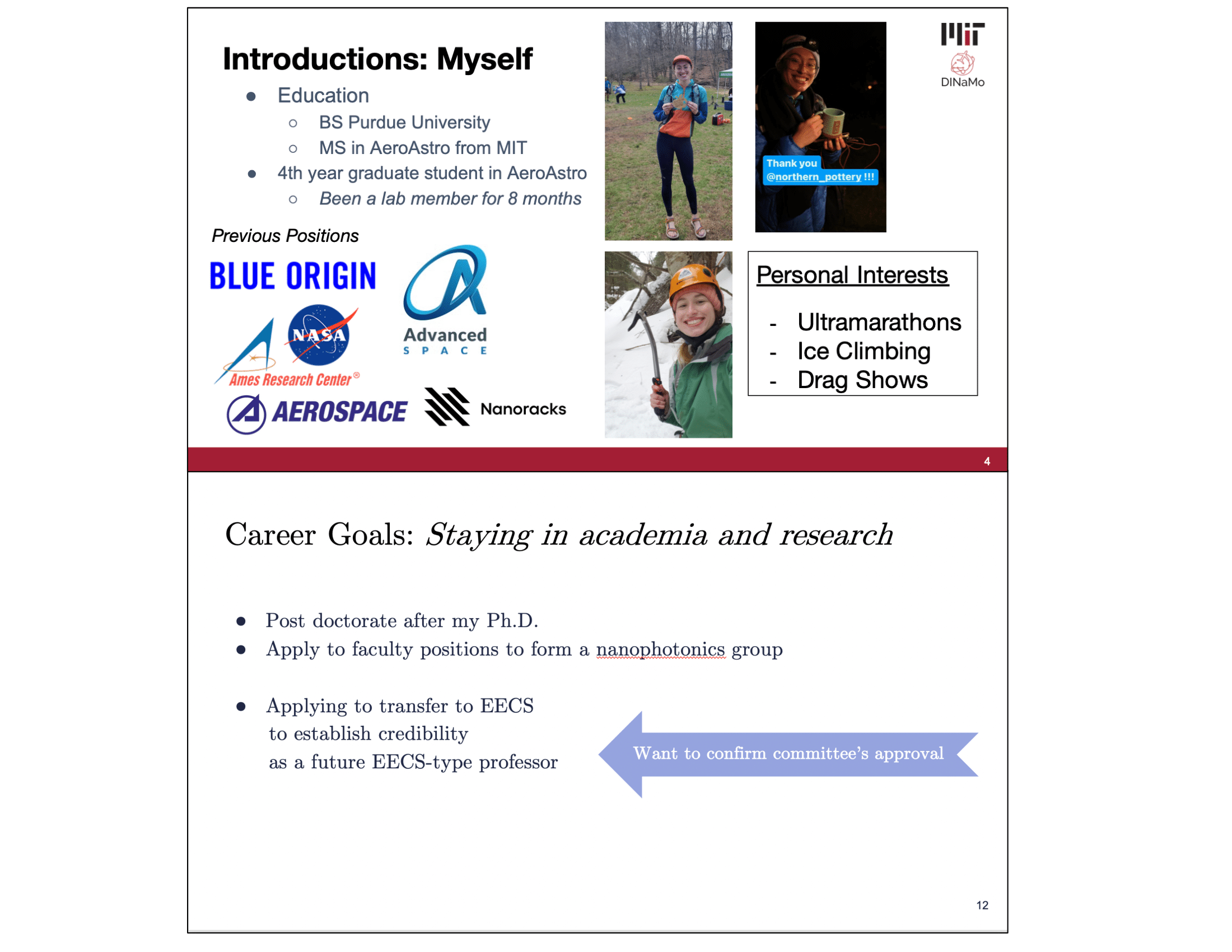
Figure 1: An example introductions slide is shown on the left. This slide is more informal in tone, as it mentions the students personal interests, and has photos taken from outside the lab. An example career goals slide is shown on the right. This slide deck had a much more formal tone, and is clearly stating the student’s intentions following a PhD. By making the career goals slide a stand-alone slide, the student is opening a discussion with their committee about what they want as an outcome of their PhD.
Additionally, your committee members may not have worked with one another before. As a result, you should provide a brief overview of their background and core competencies. This does not have to be a deep-dive into the background and accolades of your committee members; a brief bullet that explains their specialties will suffice. This will help your committee members understand their role on the committee and which person is most knowledgeable in each piece of your PhD.
5.2. Describe the state-of-the-art of the field and your differences from other approaches
The focus of your first committee meeting is to establish that you’ve thoroughly researched the field to find a gap in current work that can serve as your proposed PhD thesis topic, so you will need to demonstrate an advanced understanding of the current state of the field. As your first committee meeting is a presentation rather than a document, the review of the field should not necessarily be a systematic review of every paper out there. Instead, focus on synthesizing commonalities between your approach and others, and the weaknesses in these other methodologies. If there are one or two works that are going to serve as baselines that you will improve upon, then it is worthwhile to highlight these approaches and explain them in more detail.
5.3. Provide timelines for your anticipated milestones for your PhD.
Following your description of the state of the field and your research, you should cover housekeeping items related to the progression of your degrees. This should include the classes you intend to take (or have taken) in support of your degree, as well as when you plan to propose your PhD topic and when you would like to have the next committee meeting. It is important to cover your expectations for committee meeting frequency in this first committee meeting, so that your committee meeting members understand the kind of support that you will need throughout this process.
5.4. Answer questions surrounding your work
Following your presentation, it is customary that your committee will ask you questions about the direction of your work and the results you have presented. You should be able to explain the assumptions and experimental setup. For questions you are unable to answer, it is always fine to be honest with your committee and reply that you have not heard of a resource/method they are mentioning. If there are areas that you want specific feedback on, focus on asking detailed, thorough questions. When asking your committee for feedback or input, avoid asking them questions like “what should I do next”, or treating the committee meeting as a group brainstorming session. For example, a better alternative question for them would be that you have researched a specific set of methodologies, and you would like their input on what they think is most applicable for your problem. It is expected that you will define the direction of your PhD and complete a thorough enough literature review to be able to confidently assess the gaps in the field. Your committee serves to help you find resources to complete your experiments or techniques they may think are suitable for your approach. Your committee will not tell you what to do verbatim for your PhD, that is up to you to decide and defend.
Resources and Annotated Examples
Annotated 1st ph.d. committee meeting sldies.
Example 1st Ph.D. committee meeting slides with annotations 3 MB
All about Ph.D. committee meetings

The most common email I got during my Ph.D. was from the director of my graduate program. Over the years, it contained various ways of asking me if I’d scheduled my next committee meeting. It had varying levels of urgency, capital letters and exclamation points, depending on how late in the year it was. I would always respond politely but continue to procrastinate scheduling until the last possible minute. Committee meetings scared me, and I just didn’t want to face it. I was sure that my committee would discover that I was incompetent and stupid and didn’t deserve a Ph.D.
I realized eventually that committee meetings are incredibly helpful, and I regretted putting them off. I do not think I was the only one who felt that way, so I’m devoting this column to committee meetings: What they are, what they’re for, and how to get the most out of them.

What is a committee?
Throughout your Ph.D., you typically will be working in one lab under one principal investigator. Your committee is a group of PIs outside your lab who have complementary expertise. They meet with you to assess your progress, including deciding when you can graduate. They help you through your research, share their ideas and knowledge, and act as a reality check. The committee meeting is typically an annual or semi-annual presentation of your work and discussion about how to proceed. The format varies from school to school and committee to committee.
In addition to the presentation and discussion, there is usually a component where you step out of the room and they talk about you while you wait outside. Sometimes there is also a component where the PI steps out and you talk about any problems you may be having with them.
Importantly, your committee typically has the final say about whether and when you proceed to your defense. Which means, while it might feel like you and your PI are in charge, your committee is actually what determines when you have done enough work to defend. Sometimes this is perfunctory, with the committee agreeing with the PI when a student is ready. Other times there can be conflict with a committee evaluating the situation differently.
What is the point of a committee meeting?
First off, it’s important to be clear: Committee meetings are for you . In the end, the purpose of a committee meeting during the years of your Ph.D., is to help guide you, keep you on track to graduate, and make sure the work you are doing is good and will lead to a thesis and paper. Your committee is made of people you can turn to for advice and outside opinions. They (usually) want the best for you and don’t want you to be wasting your time.
It’s maybe your only opportunity to sit down with a bunch of experts who all are focused on you and your work. The meetings can be great opportunities for learning and growth.
There are many things a committee can do for you: They can suggest experiments, come up with new ideas about how to interpret your data, make new connections about your work, and generally ask insightful questions to make sure you’re not barking up the wrong tree or leaving out something important.
Having a committee of experts outside your lab is a great reality check to make sure you and your PI are not so deep in your project with blinders on that you are missing something big.
They can help give you guidance if your PI is too distant or too involved, and they can be a voice of reason if your PI has expectations that are unrealistic for a Ph.D. project. In rougher times, your committee can be your lifeline.
Your committee members are also people you can talk to outside of your official committee meetings, in good times and bad.
Also, your committee members will know you scientifically and can probably write you letters of reference when you find yourself applying for a job or grant.
Are committee meetings exams?
A committee meeting is not a continuation of your qualifying exam, but you will be expected to know your stuff. It’s a discussion, so there will definitely be questions. And if you don’t know how to answer them, sometimes it can feel a little humiliating. But, generally, if you keep two things in mind, it’s all good: First, you actually do know your project better than anyone else, because you are the one doing it. And, second, it’s much better to find the things you don’t know and need to know early on, so you can build your foundation early and well, and then build your research on top, instead of finding out later that you missed something obvious and wasted your time.
Do they judge my progress?
Yes. Committees can decide whether you are making enough progress and set expectations for what they want to see done by the next meeting. Sometimes they will tell you that you are not doing enough. That can be stressful, but they want you to get things done so you can graduate, not because they want to torture you.
If you’re not getting enough done, you can talk to them about why. Maybe a protocol is too complicated and you need more training, maybe troubleshooting is taking forever, or maybe you can’t get the mice or strains you need. Maybe you’ve been struggling with mental or physical health, or maybe you need help managing your schedule or setting priorities. Maybe you’ve actually been working well and efficiently but think the expectations are just too high for how long experiments take. You can have these conversations and work out how to make better progress.
How do I choose who should be on my committee?
The short answer is: Choose people whose skills and expertise will be useful to you. Also, check if your program has rules for who must or must not be on your committee.
Of course, it is impossible to find the perfect committee, but you can keep these things in mind:
Look for complementary qualities: It’s helpful to choose people who aren’t clones of your PI but complement your PI’s style and strengths. If you have a young PI, maybe look for a more established person for your committee. If you have a hands-off PI, maybe look for a committee member who will be more involved and help you work out the small things. If you have a detail-oriented PI, look for someone who likes to step back and look at the big picture. If you have a PI who loves to daydream about unrealistic experiments, look for someone who is very realistic and pragmatic. You get the point.
Look for someone invested: It might be tempting to choose people who seem like they’ll be easy and not challenge you, but this is your chance to have your horizons expanded and be pushed, so someone who might not care much about your work is not a great choice though they might be easier to deal with in the moment.
Ask around: If you are thinking about asking a certain person to be on your committee but are unsure what working with them will be like, find someone who has that person on their committee and talk to them about it.
Think about who will help you if things go badly: If everything goes smoothly in grad school, your choice of committee might not matter so much, and anyone you choose will be fine. But if things go bad, your committee will be very important, and you might want to plan for that just in case.
While researching for this article, I talked with a few grad students who stressed this point: PI–student relationships can get really fraught, and, with the power dynamic, they can become abusive, as described here , here and here . In cases where your relationship with your PI has really gone down the drain, it’s essential to have people on your committee who can be objective and help you navigate — or even help get you out.
If you can help it, your committee shouldn’t be longtime friends of your PI. That might seem appealing at first: They’ve known your PI’s work for a long time and probably want their pal’s students to do well. If everything stays good, then it’s not a problem. But if things start to go badly in the PI–student relationship, it will be useful to have someone who isn’t guaranteed to see things only from your PI’s point of view. Having someone who is more of an outsider on your committee can help here. A neutral voice who doesn’t have a long friendship invested already with your PI might be able to look objectively at the dynamics and figure out how to move everyone forward. A committee of all old friends of your PI can leave you feeling trapped and helpless if things get rough.
Anything else?
Be gracious and respectful. These professors are taking time out of their day to focus on your work.
It’s pretty tricky to find a time when a group of professors are all free for two hours. Start scheduling early. Maybe use Doodle or another scheduling aid.
Enjoy reading ASBMB Today?
Become a member to receive the print edition monthly and the digital edition weekly.
Elizabeth Stivison is a postdoctoral researcher at Vanderbilt University studying inositol signaling and a careers columnist for ASBMB Today.
Related articles
Featured jobs.
from the ASBMB career center
Get the latest from ASBMB Today
Enter your email address, and we’ll send you a weekly email with recent articles, interviews and more.
Latest in Careers
Careers highlights or most popular articles.
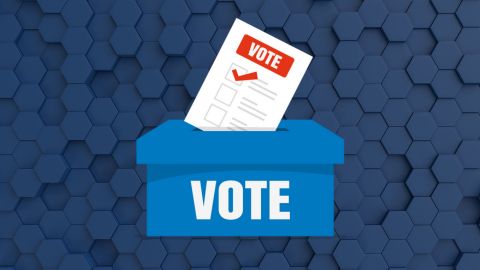
Calendar of events, awards and opportunities
It's time to vote in the society's election, and time's running out to nominate colleagues for the ASBMB annual awards.

Apply for our Advocacy Training Program by April 19. Plus, submit your entry for molecule of the year!

So, you went to a conference. Now what?
Once you return to normal lab life, how can you make use of everything you learned?
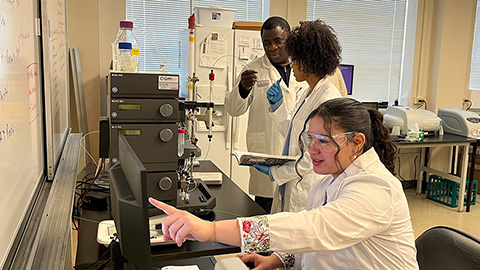
Touching the future from the bench
Scholar, scientist, teacher and mentor Odutayo Odunuga discusses the important roles of the institutional PI, his journey and his research.
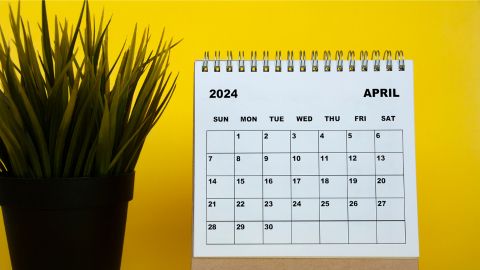
Apply for our IMAGE grant writing workshop by April 15 and our Advocacy Training Program by April 19. Plus, submit an abstract for our transcription meeting in September!

A look into medical writing
Our careers columnist spoke with Ashlea A. Morgan at Chameleon Communications International to get a sense of one type of work a medical writer can do.
Applied Physics PhD Committee Meetings
The faculty expect PhD students to meet with their research committees at least annually following the qualifying exam. These meetings are for the student's benefit in order to connect with and receive better advising from their committee members. The goal of the meetings is to review progress made to date, in a constructive and productive environment.
Students should arrange brief individual ("1:1") meetings with their committee members to discuss research progress, funding, as well as about the climate within the group in general and between advisor and student in particular. In addition to filling out this self-evaluation form (g.harvard.edu login required), the student composes a short report on paper for the committee members, containing
- 1-2 paragraphs describing scientific progress
- List of publications, if any
- Conference presentations, if any
- Anticipated date of graduation
- If you expect to graduate in a year or less, please indicate what steps you have taken, or are planning to take, regarding post-graduation career planning
Note that some faculty may prefer for these meetings to take place within a specific time window (e.g., late spring) each year; be sure to consult with your committee members well in advance so that you can take any such preferences into account. Either the student or the advisor can opt for a full-committee meeting instead of 1:1 meetings.
In Applied Physics
- How to Apply
- PhD Timeline
- PhD Model Program (Course Guidelines)
- Qualifying Exam
- Committee Meetings
- Committee on Higher Degrees
- AB/SM Information
- Research Interest Comparison
- Collaborations
- Cross-Harvard Engagement
- Clubs & Organizations
- Centers & Initiatives
- Alumni Stories

How to prepare for PhD supervision meetings
Oct 14, 2020

Have you checked out the rest of The PhD Knowledge Base ? It’s home to hundreds more free resources and guides, written especially for PhD students.
Author: Dennis Riviera
Supervision and doctoral committee meetings are a necessary part of your PhD journey. They are a chance for your supervisors to evaluate the adequacy of your research project and monitor the progress of your work.
Or at least that is what we are usually told, right?
These meetings, however, are more than a mere report of your progress. They are the chance that all PhD students have to discuss their research plan, consider its strengths and weaknesses, and get advice from experienced academics in their field.
In essence, these meetings are essential to help you improve and carry out your studies.
To make the most of them, there are a few important things to remember. In this post, I’ll share them with you.
Hello, Doctor…
Sounds good, doesn’t it? Be able to call yourself Doctor sooner with our five-star rated How to Write A PhD email-course. Learn everything your supervisor should have taught you about planning and completing a PhD.
Now half price. Join hundreds of other students and become a better thesis writer, or your money back.

You are responsible for organising the meeting
Make sure you organise your doctoral meeting well in advance and plan your agenda with time-realistic activities. A good way to do this is by rehearsing what you are going to present and then timing yourself.
Additionally, ask yourself if the information you are presenting is key to helping your mentors understand your research project, or if it is unessential. Remember that you want your committee meeting to give you advice, and you can best achieve this by focusing on specific problems or questions. Spending time on irrelevant information might give your supervisors and mentors the impression that their time is not being used effectively.
What should be on your agenda?
This depends on whether you are preparing your first meeting or subsequent ones. If this is your first meeting, it is always wise to allocate some time for brief introductions, especially if you have not yet had the chance to get to know the members of your doctoral committee.
Subsequent meetings might include a discussion on feedback that you received in previous meetings and how it has (or hasn’t) been helpful. In addition, you could include in your meeting an overview and standpoint of your research project, the training courses that you are taking or have taken, and the local and international conferences that you have participated in (or plan to).
Ask your main supervisor for the things to include or remove from the agenda and allocate some time for spontaneous discussion. Keep in mind that, depending on your university, the minutes of your meeting might need to be signed and sent to the graduate student office.
Help your supervisors and mentors prepare
Once you have organised your agenda and prepared what you would like to present, send your supervisors and mentors the agenda, together with a written summary of the things you have achieved.
The summary could include a short description of your research project, a timetable of all ongoing activities, and other documents that help them gain an overview of your progress. Consider the information that your mentors and supervisors need to know so that are best able to help you. For example, you could describe the type of data you have collected or expect to collect (in case they are not familiar with it), and the analyses that you plan to perform.
Lastly, do not forget to keep a professional tone in all communications.

Your PhD thesis. All on one page.
Use our free PhD structure template to quickly visualise every element of your thesis.
The final thing on your agenda
Finally, remember to put yourself on your agenda. It is your PhD. You are the one who will be immersed in the literature, designing studies, collecting and analysing data, drawing conclusions, and writing academic papers. The doctoral committee is there to help you, to turn your weaknesses into strengths, and to share with you the best of their knowledge.
Listen intently to everything that your mentors and supervisors tell you, and speak forcefully when you update them on your progress. Be aware that the questions they ask are there to guide you and improve your research. Similarly, everything you say not only updates the committee, it also lets them know about who you are and the type of researcher you are becoming.
Doctoral committee meetings should not add pressure to an already hectic PhD journey. Use these meetings wisely to move forward with your studies.
Dennis A. Rivera obtained a Master of Education at the Technical University of Munich (TUM) and is now a doctoral student at UCLouvain. The focus of his research is on improving the pedagogical design of MOOC forums to promote task-oriented socio-cognitive interactions.
Interested in group workshops, cohort-courses and a free PhD learning & support community?

The team behind The PhD Proofreaders have launched The PhD People, a free learning and community platform for PhD students. Connect, share and learn with other students, and boost your skills with cohort-based workshops and courses.
Share this:, submit a comment cancel reply.
Your email address will not be published. Required fields are marked *

Search The PhD Knowledge Base
Most popular articles from the phd knowlege base.
The PhD Knowledge Base Categories
- Your PhD and Covid
- Mastering your theory and literature review chapters
- How to structure and write every chapter of the PhD
- How to stay motivated and productive
- Techniques to improve your writing and fluency
- Advice on maintaining good mental health
- Resources designed for non-native English speakers
- PhD Writing Template
- Explore our back-catalogue of motivational advice
- Graduate Studies
- Committee-Meetings
Annual Committee Meetings
The Major Professor will preside at the annual meetings and will be primarily responsible for the format of these meetings and for filing the notes and comments from the committee members to the Graduate Office. The Major Professor should establish, in advance, guidelines for the length and nature of the student’s presentations, the length and scope of the question and answer periods. Hence, prior to each meeting the student should discuss the format for that meeting with the Major Professor. It is the student’s responsibility to schedule the annual meeting.
Annual committee meetings, preliminary exams and thesis defenses should not be scheduled during the summer if at all possible with the exception of August graduations.
To do list:
- Email the committee with and ask if anyone has any full weeks or major commitments in their schedule during the month the student would like to hold the meeting.
- Once this is determined, send a digital request to the committee for availability of a two-week stretch, at most. The most favorable way to do this is to use WhenIsGood (preferred) or doodle .
- Once the date is determined, the student should reserve a room using the room reservation system that can be found on the Departmental Website under Resources.
- A brief (one paragraph synopsis of overall study and goals)
- Data in form of graphs and tables of major findings of previous year.
- Enough text to explain figures and tables.
- Expanded coverage of any experiments, experimental designs, hypotheses to be tested, types of data to be collected, rationale etc. for the next year’s research if not already covered in preliminary proposal; that is, if there is a change in research direction; if material is already in preliminary proposal, then a brief synopsis with a reference to pages in prelim proposal will be sufficient.
- Information on research-related activities (e.g., grants applied for or obtained, papers submitted, soon to be submitted, or published, presentations given, honors and awards received).
- A time line for major sections of the research project that can show, at a glance, where the student is in terms of fulfilling research goals.
- A timetable for the next year
- For the meeting, the student should prepare a presentation not to exceed 20 minutes, complete with figures etc., which devotes equal time to i) what was accomplished since last meeting and ii) what research is planned for the next year (e.g., experimental designs, predictions, etc.).
- By means of a question and answer period, the advisory committee will evaluate the student’s progress both in research and in strengthening any weakness in the student’s background, if such was indicated by a previous examination or by the progress report. Two forms are required:
Each committee member will complete an individual report of the students overall progress, including strengths, weaknesses, and recommendations.
The Major Professor will also complete a summary report providing feedback on 5 learning outcomes as well as the resulting vote from the committee (Pass or Fail). All forms should be returned to the Graduate Office as soon as possible.
Failure to achieve a passing performance at two successive meetings will be considered as grounds for recommending that a student should leave the PhD program.

Purdue University Biological Sciences, 915 Mitch Daniels Boulevard, West Lafayette, IN 47907
Main Office: (765) 494-4408 Business Office: (765) 494-4764 Contact Us
© 2024 Purdue University | An equal access/equal opportunity university | Copyright Complaints
Trouble with this page? Disability-related accessibility issue ? Please contact the College of Science Webmaster .
Maintained by Science IT
MIT Department of Biological Engineering

Search form

- DEI Collaborative
- DEI Current Efforts
- DEI Newsletter
- Learning Resources
- Faculty Directory
- Staff Directory
- Open Faculty Positions
- Prospective Undergraduate
- Major Degree Requirements
- Minor Programs
- Undergraduate Thesis
- Research Prize
- BE Student Life
- Career Resources
- Master's Degree
- Graduate PhD Application
- Application Assistance Program
- Graduate FAQ
- Graduate Life
- Meet The Graduate Students
- PhD Course Requirements
- Advisor Selection
- PhD Written Exam
- Thesis Committee
- PhD Oral Exam
- PhD Dissertation Requirements
- BE Graduate Student Board
- Teaching Assistant Award Winners
- BE Communication Lab
- Research Areas
- Wishnok Prize
- BATS Resources
- BATS Archive
- For Undergraduate Students
- Professional Development
- For Post Docs
- Covid-19 Resources
- Laboratory Safety
- Faculty & Instructors
The student and research supervisor should agree upon members of a Thesis Committee and propose a Committee to the appropriate Graduate Program Committee Chair. During the summer of the second year, the student must submit the PhD Thesis Committee form to the Graduate Committee Chairs (Profs. Katharina Ribbeck and Alan Jasanoff, copy to the Academic Office) to request approval of the Thesis Committee membership. The Committee should be comprised of the thesis advisor(s) plus a minimum of two additional members, at least one of whom must be a member of the BE faculty. The Committee Chair (who presides at all Committee meetings, including the Oral Examination) must be a BE faculty member.
The Ph.D. Thesis Committee has the responsibility of advising a student on all aspects of the thesis experience, from the proposal process through the preparation and defense of the final document. The Thesis Committee must be approved prior to the scheduling of the thesis proposal/oral exam presentation, which must take place in the spring academic semester following the spring semester in which the General Written Exam is successfully completed.
It is expected that the student and supervisor will hold progress reviews with the entire Thesis Committee at least once a year. In addition to the Oral Exam/Thesis Proposal, the student must eventually present at least two Regular Thesis Committee Meeting Reports (one of which must be a Final Thesis Committee Meeting Report) and a Thesis Defense to the Thesis Committee. Progress Reports are required once a year or more frequently if the Thesis Committee so requests. More frequent one-on-one meetings are strongly recommended. Thesis Committee Member changes must be approved by submitting a petition to [email protected] .
The first Progress Report must be held within one year of the Thesis Proposal/Oral Exam presentation. One week before the Progress Report meeting, the student should deliver annotated Specific Aims to each of the Committee Members. The aims should be 2 pages long (at most/ 12pt font). After each up-to-date Specific Aim, please add a few sentences outlining the status of that aim.
At the Progress Report presentation, the student should hand out photocopies of slides to the Thesis Committee Members (generally, this will be a print out of a PowerPoint presentation). Also, the student should provide the Committee Chair with the Thesis Progress Report form to complete. The form should be emailed to [email protected] within two weeks of the committee meeting.
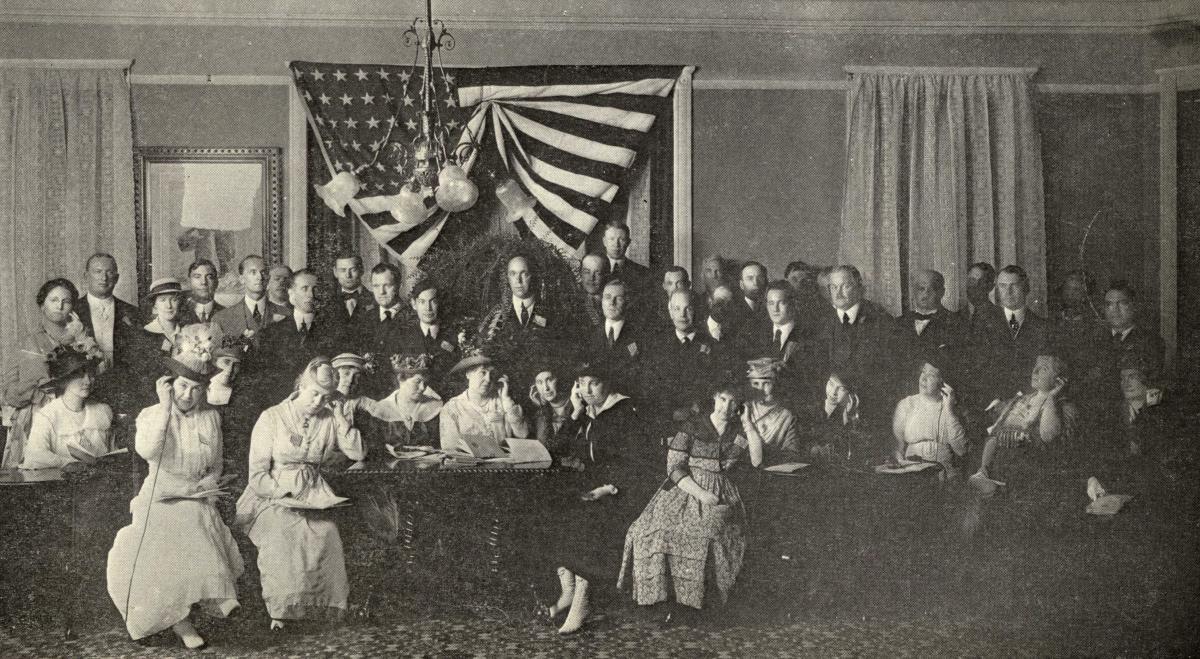

- Undergraduate
- Master’s
- CBE Research Areas
- Centers + Institutes
- Shared Facilities
- Faculty Labs
- Graduate Group
- Undergraduate Research
- Open Faculty Positions
- Overview + Welcome
- Visiting CBE
- Make a Gift
- Current Students
- Ph.D. Candidacy Examination
Ph.D. Candidacy Examination: Submission and Defense of the Dissertation Proposal
To be eligible for the Ph.D. Candidacy exam, a student must have passed the Qualifications Evaluation and be in good academic standing. All Ph.D. students should defend their dissertation by the end of the fall semester of their third year of graduate studies.
Step 1: Getting Started - Registration for Your Dissertation Proposal
Before the third year, each student and advisor should identify a dissertation research topic, select potential committee members, and develop a timeline for their Dissertation Proposal by the end of the fall semester of their third year of study. All students must formally register for the Dissertation Proposal Candidacy Exam (access registration form here) by the end of the fifth semester of graduate study. If the student took a leave of absence during their studies or believes he/she may have other extenuating circumstances, contact the Graduate Program Coordinator so that a timeline to defend the proposal can be determined based on individual circumstances.
Step 2: Registration Review - Committee Approval and Appointment of Chair
The Graduate Group Chair will review the topic, committee members, and timeline proposed on the registration form. After reviewing your registration and committee recommendations, the Graduate Group Chair will appoint your Dissertation Committee Chair. Changes or additions to the committee require the approval of the Graduate Group Chair.
Guidelines for Selecting your Committee
Dissertation Committee Composition:
- The committee shall be composed of 4 faculty members (including the advisor) and approved by the CBE Graduate Group Chair. In special circumstances, an additional member may be added, subject to the approval of the Graduate Group Chair. Appointment of committee members who are not part of Penn faculty requires details of their full title, affiliation, and a short biographical sketch.
- The dissertation advisor is an ex officio member of the committee.
- Three committee members must have full-time Standing or Research faculty appointments at Penn.
- Two committee members must be members of the CBE Graduate Group.
- One committee member must hold a doctorate in an Engineering discipline or a highly quantitative subject (e.g. math, physics), AND/OR is a Primary Faculty member in a School of Engineering and Applied Science Department.
- One member (who meets the criteria listed below) is recommended as Chair by the advisor and must be approved by the CBE Graduate Group Chair
Responsibilities of the Dissertation Committee Chair:
- At every stage, verify that the dissertation meets the CBE requirements for rigorous engineering and Chemical and Biomolecular science content. Discuss any concerns in this regard with the student and advisor, and contact the CBE Graduate Group Chair when concerns arise.
- Ensure that the content and tone of the proposal defense, annual committee meetings, and dissertation defense meeting are constructive for the student and advisor. If the student and advisor have difficulty in scheduling meetings in a timely manner, the Committee Chair will contact the CBE Graduate Group Chair to recommend the replacement of committee members with limited availability.
- At each meeting of the committee, review the student’s course planning guide and transcript (provided by the student) to ensure the student is meeting CBE course requirements in a timely manner. Inform the advisor and Graduate Group Chair of any concerns, and include committee recommendations for additional coursework in the official meeting report.
- At each meeting of the committee, ensure that proper forms are completed with comments to the student, signed by all members of the committee, and submitted to the Graduate Group Coordinator (Ken Lambert)
Qualifications of the Dissertation Committee Chair (must satisfy all criteria):
- Is a member of the CBE Graduate Group
- Is a member of the Standing Faculty of the University of Pennsylvania
- Has served as a member or advisor on the proposal defense of at least one University of Pennsylvania CBE dissertation committee previously (Preferred).
Step 3: Write your proposal - and have your advisor read, edit and approve it.
The advisor must approve the dissertation proposal before it can be distributed to the committee. The dissertation proposal is based on the NIH application format and should have the following sections:
- Cover page including title, student and advisor name and contact information,
- Table of Contents, Abstract (<1 page),
- The Specific Aims section states the specific objectives of the research proposed (e.g., to test a stated hypothesis, create a novel design, solve a specific problem, challenge an existing paradigm or clinical practice, address a critical barrier to progress in the field, or develop new technology).
- The Research Strategy section includes subsections: Significance (e.g. importance of the problem and how the project will improve scientific knowledge, technical capability), Innovation (e.g. methods, instrumentation, theories, etc.), and Approach (overall strategy, methods and analyses, as well as preliminary data, potential problems and alternative strategies). This format emphasizes the scientific and technical merit of the proposed studies, with less emphasis on preliminary data.
- There is a 13-page limit, single-spaced with a minimum font size of 11, excluding the Cover Page, Table of Contents, Abstract, and References.
Step 4: Schedule the Dissertation Proposal Date & Location
Concurrent with the final stages of writing, the student should schedule a date for the examination, allowing a minimum of two weeks for the proposal to be reviewed by the committee. The student should copy his/her advisor on all correspondence with committee members. To facilitate rapid convergence on convenient meeting time and dates, students should find 5-7 dates/times that work for the student and advisor, and use meeting planner websites (e.g. www.doodle.com, www.surveymonkey.com, when2meet) to help schedule the exam. If the student has continued difficulty scheduling an exam due to an unresponsive committee member, he/she should inform the advisor for help. If the member is non-responsive for more than a week, do not hesitate to contact the Graduate Program Coordinator or Graduate Group Chair to expedite the scheduling of the oral exam.
When the student has finalized a date, they must inform the Graduate Program Coordinator. Meeting rooms can be reserved through the SEAS Room Reservation Request Form . If a student needs assistance reserving a room he/she should contact the Graduate Program Coordinator.
- The student should send an email to all committee members with confirmation of the date and meeting place.
- The student will send a reminder to all committee members of the time and place of the examination one week before the meeting.
- The Graduate Group Chair and Graduate Program Coordinator should be copied on the reminder, which can be distributed by e-mail.
- The student must also prepare and bring the proper paperwork for the proposal meeting. This includes a CPG, updated transcripts, and the Acceptance of Dissertation Proposal Form found online.
If there is a need to change the meeting time of the presentation the student must confirm these changes with committee members and make sure that everyone is agreeable to the change. The student must also inform the Graduate Program Coordinator and the Graduate Group Chair of any changes that are made.
Step 5: The Oral Dissertation Proposal
The Oral Presentation period of the dissertation proposal should last approximately 45 minutes and will be followed by a question-answer period of similar length. Adjustments may be made concerning the length of the presentation and subsequent discussion based on committee discretion, but the student should tailor the presentation roughly to these guidelines. The exam room should be reserved for two and a half hours to also allow the committee time for evaluation and discussion. The committee chair will report the recommendations to the Graduate Group Chair on the form provided by the student. The Acceptance of Dissertation Proposal form can be found online.
All committee members must be present at the oral presentation. If a member of the committee is unable to attend, the student must obtain approval from the committee chair and Graduate Group Chair to proceed with the proposal. In this case, the absent member will be required to send comments to the Committee Chair two days before the presentation. At the Committee Chair’s discretion, these comments or questions may be used during the exam to test the candidate’s knowledge of the subject area.
The dissertation advisor is an ex-officio member of the committee and should always be present at the examination and all meetings of the committee. However, the advisor must allow the student to demonstrate their knowledge and command of the subject on their own and will be recognized by the committee chair only to clarify issues when requested by a committee member.
Step 6: Feedback from the Dissertation Proposal
The student may be informed orally on the outcome of the dissertation proposal following the examination. Written confirmation of the outcome will follow after the Committee Chair returns the examination approval form to the Graduate Program Coordinator. The committee may request revisions to the proposal, accept it as is, or fail the student. The dissertation committee must accept the proposal before the student advances to Candidacy.
NOTE: Students who have not defended their dissertation proposal and passed their Candidacy Exam by the end of the Fall semester of their 3rd year of graduate studies must petition to the Graduate Group Chair for an extension. The petition should explain why a proposal was not submitted and provide a schedule for submission. The University regulations state that the maximum time limit for a student to “Advance to Candidacy” is five years, after which time the student will be dropped from the rolls. Dissertation proposals must be defended and approved at least 12 months before the Doctoral Dissertation is submitted. The Graduate Group Chair will not accept a Doctoral Dissertation before this period has passed.
- Faculty & Staff
Graduate and Professional Student Senate (GPSS) Diversity Committee – Special Meeting
Monday, April 22, 2024, at 12:00pm in Husky Union Building (HUB) Room 314 & Zoom
- Call to Order
- Introductions
- Open Discussion
Monday, April 22
Previous issues, submit a tip.

USG discusses mental health initiatives at final meeting of semester
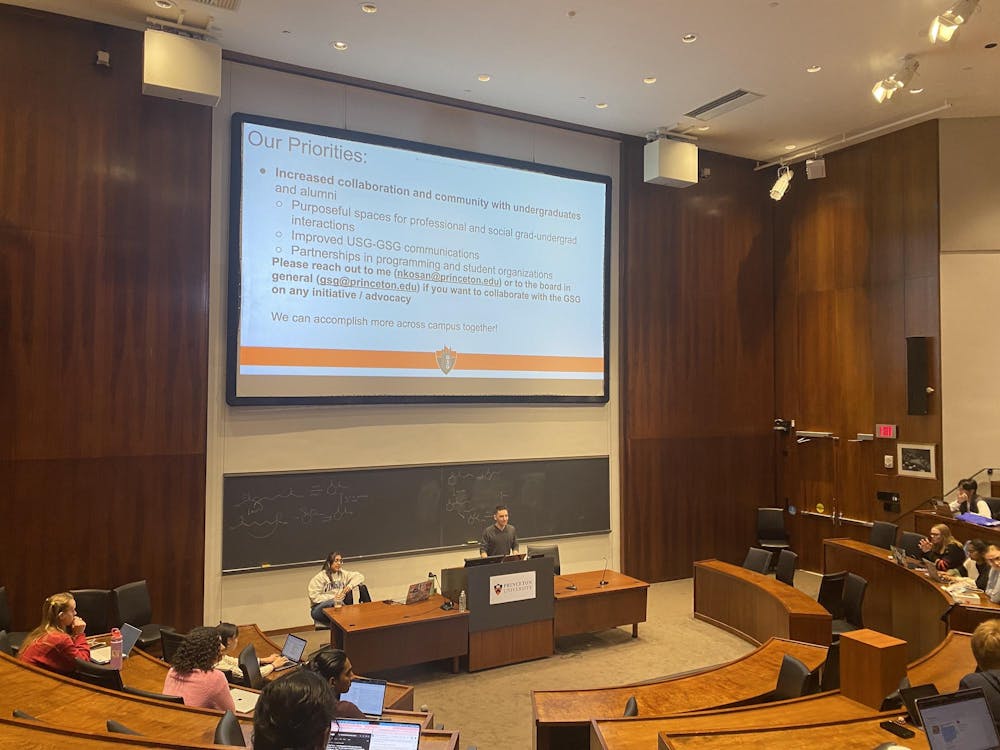
Nick Kosan, the vice president of internal affairs for the Graduate Student Government (GSG), presents at the USG meeting.
Alena zhang / the daily princetonian..
The Undergraduate Student Government (USG) Senate convened for the final regularly scheduled meeting of the semester on Sunday, April 21, addressing a range of issues from collaboration efforts to mental health initiatives and student group selectivity.
Mental Health Committee Chair Meera Kochhar ’25 presented updates from the committee. She outlined the subcommittees, which focus on various aspects of mental health including therapeutic services, academics and advocacy, diversity, equity, and inclusion (DEI), and mental health space. Kochhar announced an upcoming Mental Health Space event scheduled for Friday, April 26, aimed at providing students with a space for self-care and relaxation.
“The whole purpose of our grand opening is that we want to make sure that students feel like they know that the space exists and like what its purpose is … so we have a variety of activities that students can engage in for self care,” Kochhar said.
As a part of expanded mental health programming, the University previously announced renewed collaboration with the Jed Foundation, a nonprofit focused on emotional health and suicide prevention, at the Council of the Princeton University Community (CPUC) on Monday, March 18. The committee is also gathering student feedback on mental health experiences, particularly related to therapeutic services and financial burdens. One specific issue was the financial burden of copays, and the committee is seeking student voices and data before presenting to the administration.
Additional plans include refreshing mental health training, reviving the Ivy League Mental Health Conference, and organizing reading period wellness events.
Nick Kosan GS, Vice President of Internal Affairs for the Graduate Student Government (GSG), delivered a presentation highlighting potential collaborations between GSG and USG. Emphasizing the need to foster partnerships between the two governing bodies, Kosan outlined priorities including creation of purposeful spaces for professional and social interactions, improved USG-GSG communications, and continued robust wellness programming and resources.
Campus and Community Affairs (CCA) Committee Chair Genevieve Shutt ’26 highlighted recent events organized by the committee, including trips to Six Flags and the Antiquarian Book Fair in New York City. She also presented on Tigers in Town, which this semester contributed to a total of $5,199.32 spent at local businesses in Princeton.
U-Councilor Anuj Krishnan ’27 presented findings from the Student Group Selectivity Working Group, which surveyed club officers on their perspectives and ways to make clubs more accessible. The survey revealed concerns over confusion regarding selectivity processes and a desire for greater transparency. The working group aims to create a more consistent experience in clubs and plans to organize future training to address these issues.
Krishnan said, “This is going to be an opportunity for students to see what we’re doing in order to make clubs accessible, but it is also … a wake up call to club officers [to follow some] best practices.”
USG meetings are open for all students to attend and are held on Sundays from 4 to 5 p.m., typically in Robertson Hall 016. This week’s meeting, the last regularly scheduled Senate meeting of the semester, was held in Robertson Hall 100.
Alena Zhang is a staff News writer for the ‘Prince.’
Please send any corrections to corrections[at]dailyprincetonian.com.

Fast-a-Thon brings Muslim and non-Muslim students together

Today, Daybreak revisits Fast-a-Thon and examines how it brings the University community closer together.
Two Princeton professors testify in election hearings regarding New Jersey county line
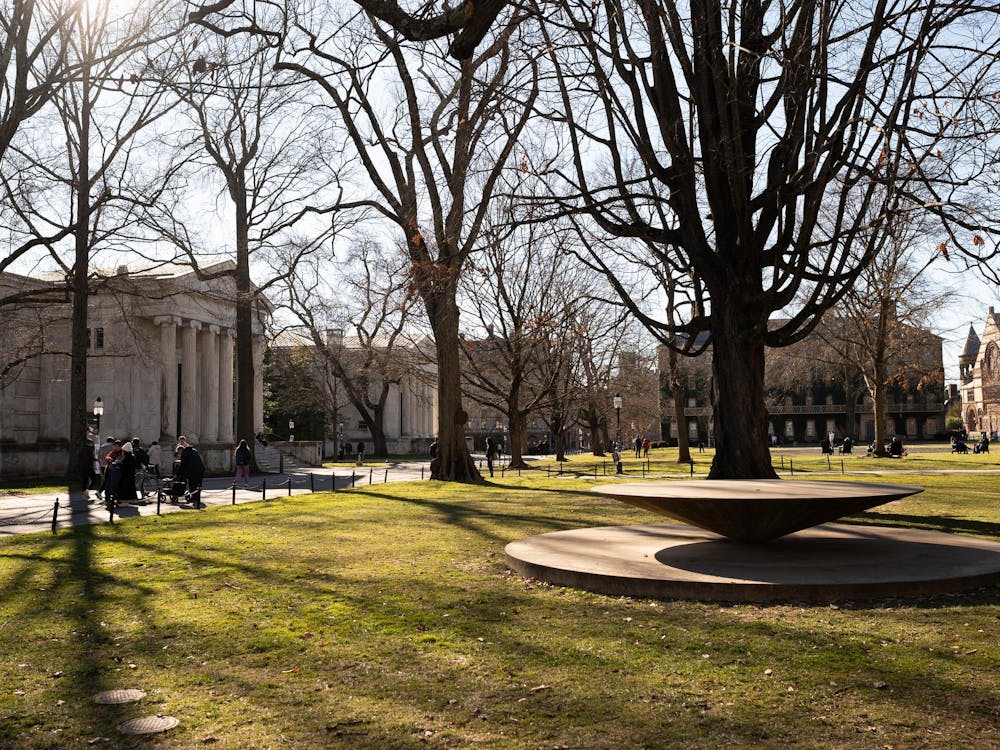
The county line system places endorsed candidates in a single column or row, which displays them more prominently on primary ballots, as opposed to the block ballot system, which groups candidates by the office they are seeking. The system is unique to New Jersey.
University’s termination of lease with Nassau Swim Club makes splash of community pushback
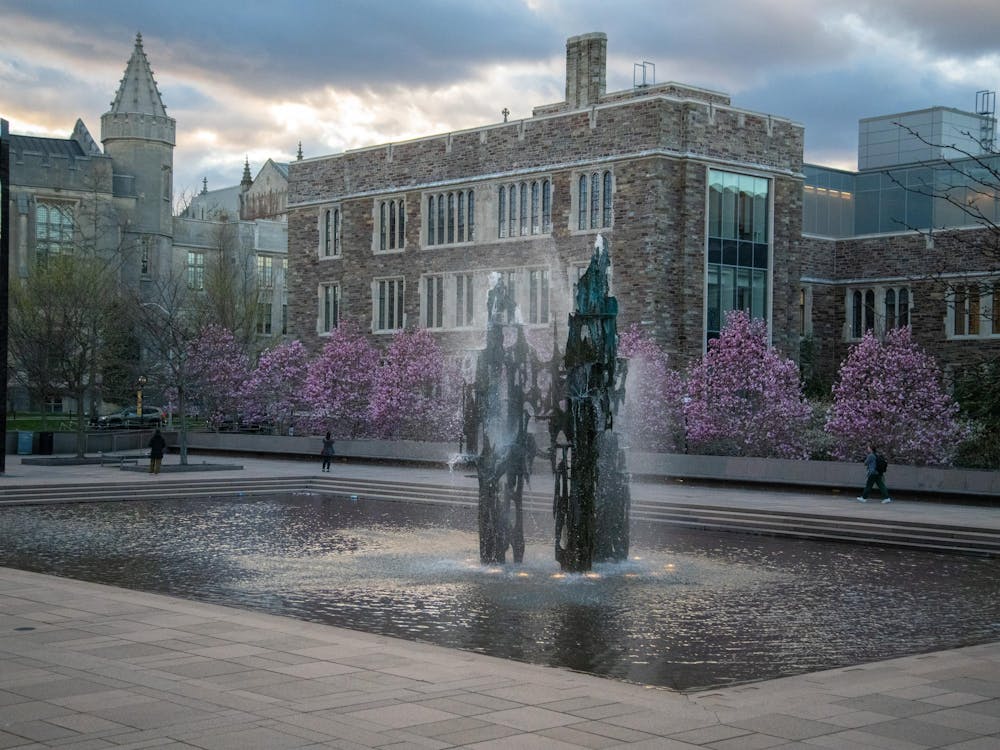
Despite pushback from community members, the University’s decision to terminate the lease of the Nassau Swim Club (NSC) on Tuesday will go forward as planned. This decision follows NSC facing financial difficulties for several years. The University refused the appeal put forth by NSC which included detailed financial plans.
Most Popular
The adl gave princeton an f for antisemitism. after the cjl pushed back, they bumped it up to a d., 184 members of the class of 2026 declared economics. we broke down declaration day., progressives failed a lesson in free speech, genrietta churbanova, john freeman named valedictorian, salutatorian, community is built on empathy; stop politicizing it.


IMAGES
VIDEO
COMMENTS
For many students, the first committee meeting serves as a dress rehearsal for the PhD proposal. Therefore, the first committee meeting is a great opportunity to get feedback from your committee members about research progress or ideas that you think will be in your proposal. 4. Analyze Your Audience.
First off, it's important to be clear: Committee meetings are for you. In the end, the purpose of a committee meeting during the years of your Ph.D., is to help guide you, keep you on track to graduate, and make sure the work you are doing is good and will lead to a thesis and paper. Your committee is made of people you can turn to for advice ...
Graduate programs have handbooks with important deadlines and more comprehensive details on how to structure the thesis committee, but this post is meant to be a miniguidebook from a student's perspective. ... Be sure to contact your peers and ask about their experiences. While the thesis committee meeting is an important learning experience ...
Remember, your committee is an experienced, intelligent group of researchers who are there to help you produce the best Ph.D. work you can! It is often helpful for committee members to have a printout of your powerpoint presentation as a handout. 4) Bring the First Committee Meeting Form to your committee meeting. 5) Discuss the committee's ...
Revised 10/30/2023 . COMMITTEE MEMBER RESPONSIBILITIES . The First Committee Meeting (Required) PI is responsible for summarizing committee comments on the ADS thesis committee meeting report. The committee will designate at least 3 readers to meet the Graduate School's minimum requirement. Ensure the student articulates a career goal, understanding it might change in subsequent meetings.
Aug 2022. The thesis committee is there to support and guide the student through dissertation research. They evaluate your progress and help to make sure you are on track to get your dissertation within a reasonable time. Early in your graduate career, their focus will be on making sure you have defined and reasonable goals.
The Bioengineering faculty expect PhD students to check in with their research committees at least annually following the qualifying exam.These meetings are for the student's benefit in order to connect with and receive better advising from their committee members.. Starting in spring of G3 year, Bioengineering PhD students annually provide their research committee with a 1-2 page overview of ...
ESE PhD Committee Meetings. The faculty expect PhD students to meet with their research committees at least annually following the qualifying exam. These meetings are for the student's benefit in order to connect with and receive better advising from their committee members. For ESE students the target date for these meetings is by the first ...
The faculty expect PhD students to meet with their research committees at least annually following the qualifying exam.These meetings are for the student's benefit in order to connect with and receive better advising from their committee members. The goal of the meetings is to review progress made to date, in a constructive and productive environment.
Doctoral committee meetings should not add pressure to an already hectic PhD journey. Use these meetings wisely to move forward with your studies. Dennis A. Rivera obtained a Master of Education at the Technical University of Munich (TUM) and is now a doctoral student at UCLouvain. The focus of his research is on improving the pedagogical ...
The committee's main role is to determine whether the thesis gives adequate grounds to grant a PhD. At some schools the committee convenes only once or twice---perhaps once to approve a plan for the thesis, and once to approve it. At others, the committee might meet once a year to consider whether the student is making adequate progress.
Annual committee meetings, preliminary exams and thesis defenses should not be scheduled during the summer if at all possible with the exception of August graduations. To do list: The student should identify a time that works for everyone on the committee. It is highly recommended that the student attempt to schedule the meeting 2-3 months ...
Guidelines to be followed by all PhD students: It is mandatory for part-time PhD students to meet their Research Supervisor at-least once a week for discussions. Any change in the mode of PhD programme (Full-Time to Part Time or Part-Time to Full-Time) must be informed to Dean of Research. A letter in this regard has to be formally submitted ...
The committee chair should prepare a brief written report on each meeting for submission to the Graduate Advisors and Neuroscience Program office. This report will include among other things, a statement on the time-table and the adequacy of the student's statement of proposed work necessary for an acceptable Ph.D. thesis.
Thesis Committee Member changes must be approved by submitting a petition to [email protected]. The first Progress Report must be held within one year of the Thesis Proposal/Oral Exam presentation. One week before the Progress Report meeting, the student should deliver annotated Specific Aims to each of the Committee Members.
Advisory Committee Meetings Students will meet with a standing Advisory Committee. The Advisory Committee will recommend elective coursework and explain the rotation system. After meeting 4, the student should complete an Individual Development Plan; proof of submission should be sent to the Graduate Office. Preliminary Exam Students will meet with their Preliminary Examination Committee ...
At each meeting of the committee, review the student's course planning guide and transcript (provided by the student) to ensure the student is meeting CBE course requirements in a timely manner. Inform the advisor and Graduate Group Chair of any concerns, and include committee recommendations for additional coursework in the official meeting ...
Public Records and Open Meetings 4311 11th Ave NE Suite 360 Box 354997 Seattle, WA 98105. [email protected] 206-543-9180 Fax: 206-616-6294. Eliza A. Saunders
The Undergraduate Student Government (USG) Senate convened for the final regularly scheduled meeting of the semester on Sunday, April 21, addressing a range of issues from collaboration efforts to mental health initiatives and student group selectivity. Mental Health Committee Chair Meera Kochhar '25 presented updates from the committee.
Nemat "Minouche" Shafik is the latest Ivy League president to testify about antisemitism on campus before the Committee on Education and the Workforce. Columbia University's president ...
Round table 2021. "Electrostal" Metallurgical plant" JSC has a number of remarkable time-tested traditions. One of them is holding an annual meeting with customers and partners in an extеnded format in order to build development pathways together, resolve pressing tasks and better understand each other. Although the digital age ...
V.N. Anisimov. was elected the President of the Gerontological Society, and Prof. V.Kh. Khavinson - the Vice President. In 1997, at the XVI World Congress of the IAGG in Adelaide, the Gerontological Society of the Russian Academy of Sciences became a member of the International Association of Gerontology and Geriatrics (IAGG). Prof.
Darko Janjevic. 01/18/2024. Russia boasts a massive energy infrastructure, but a recent wave of heating system breakdowns in Moscow and beyond has left many residents scrambling to keep harsh ...
Revised 02/18/22 . COMMITTEE MEMBER RESPONSIBILITIES . The First Committee Meeting (Required) PI is responsible for summarizing committee comments on the ADS thesis committee meeting report. The committee will designate at least 3 readers to meet the Graduate School's minimum requirement. Ensure the student articulates a career goal, understanding it might change in subsequent meetings.
Russia's Investigative Committee has opened a criminal case over Klimovsk Specialized Ammunition Plant not meeting safety requirements. On Tuesday, the committee said that because of the incident ...